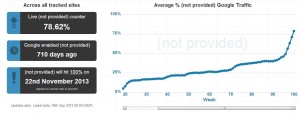This is a really intriguing statement by ICANN. It’s couched in diplomatic language, so I have added my interpretations in less diplomatic language.
Montevideo Statement on the Future of Internet Cooperation
7 October 2013
Montevideo, Uruguay – The leaders of organizations responsible for coordination of the Internet technical infrastructure globally have met in Montevideo, Uruguay, to consider current issues affecting the future of the Internet.
The Internet and World Wide Web have brought major benefits in social and economic development worldwide. Both have been built and governed in the public interest through unique mechanisms for global multistakeholder Internet cooperation, which have been intrinsic to their success. The leaders discussed the clear need to continually strengthen and evolve these mechanisms, in truly substantial ways, to be able to address emerging issues faced by stakeholders in the Internet.
In this sense:
They reinforced the importance of globally coherent Internet operations, and warned against Internet fragmentation at a national level. They expressed strong concern over the undermining of the trust and confidence of Internet users globally due to recent revelations of pervasive monitoring and surveillance.
[Translation: We are concerned that one effect of the revelations about the NSA’s activities will be to hasten moves towards the ‘Balkanization’ of the Internet. We are also worried about the way trust and confidence in the Internet has been undermined by these revelations.]
They identified the need for ongoing effort to address Internet Governance challenges, and agreed to catalyze community-wide efforts towards the evolution of global multistakeholder Internet cooperation.
[Translation: the old system, by which the US exercised de-facto control over the central governance institutions of the Internet, has to be scrapped and replaced by something based on genuine global representation.]
They called for accelerating the globalization of ICANN and IANA functions, towards an environment in which all stakeholders, including all governments, participate on an equal footing.
[Translation: the days when the US was primus inter pares are over.]
They also called for the transition to IPv6 to remain a top priority globally. In particular Internet content providers must serve content with both IPv4 and IPv6 services, in order to be fully reachable on the global Internet.


